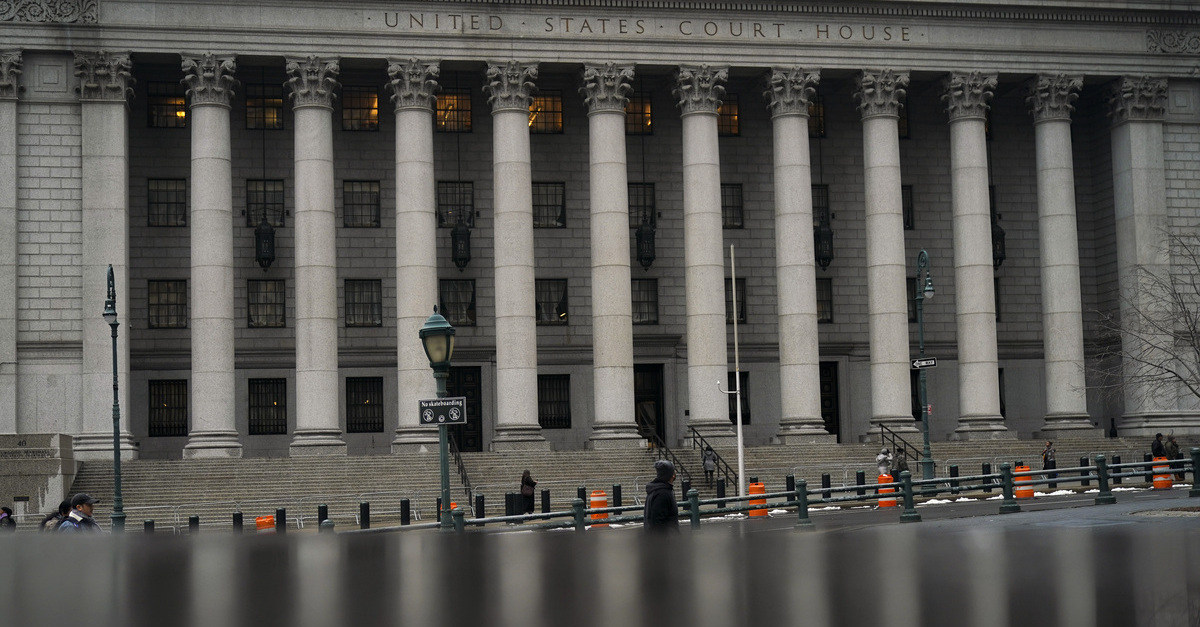
A powerful federal court in Manhattan is instituting an unheard of suite of visitor restrictions due to rapidly increasing fears about the novel Coronavirus (COVID-19).
For seasoned legal observers, lawyers and law students, the U.S. District Court for the Southern District of New York (SDNY) has been long-known as one of the most important courts in the country aside from the U.S. Supreme Court itself. The famous court’s visibility and popular purchase has only risen in recent years due to its central role in various legal drams surrounding and threatening the administration of President Donald Trump.
On Monday, the SDNY issued a two-page standing order with sweeping restrictions on visitors who recently traveled to any of several countries currently undergoing severe Coronavirus outbreaks.
Visitors will be denied entry if they visited China, South Korea, Japan, Italy or Iran within the past two weeks.
“Persons who reside or have had close contact with someone who has travelled to one of [those] countries,” are also banned from entering the SDNY court system for the next 14 days.
Importantly, the list does not single out foreign nationals from those countries—but simply relies upon recent travel timelines and the latest understanding of the virus’s dormancy period and transmission time/abilities. The standing order also notes that the list of countries is subject to change.
Unsurprisingly, the restrictions also bar anyone who has been asked to “self-quarantine by any doctor, hospital or health agency” along with anyone who has been diagnosed with the Coronavirus or come into contact with anyone who has received such a diagnosis.
”Anyone attempting to enter in violation of these protocols will be denied entry by a Court Security Officer,” the order notes in bold text.
Additional language at the bottom of the standing order notes that the restrictions will “remain in place temporarily until it is determined to be safe to remove them.”
“While this is extraordinary—these are extraordinary times,” noted former SDNY prosecutor—and current Westchester District Attorney candidate—Mimi Rocah. “The only time I recall such disruption to our federal justice system is immediately after the 9/11 attacks when the courts and the SDNY and beyond were operating with great limitations. But we got through that and we will get through this.”
The unprecedented restrictions will apply to all three courthouses that comprise the influential SDNY network in New York. And, while decidedly precautionary, the way those restrictions were announced—and the basic fact that such measures are being taken—isn’t exactly inspiring confidence.
“SDNY announces a standing order for visitor restrictions to all courthouses in the district (in a series of three identical, all-caps, not-at-all-anxiety-inducing emails),” noted California Western Law Professor Danielle C. Jefferis.
Jefferis told Law&Crime “it’s definitely possible” that the orders will have an impact on current caseloads and business at the busy, three-pronged court system—two courthouses are located in Manhattan; one is located slightly further north in Westchester County.
”If parties and/or counsel who fall within those restrictions can’t appear, that’ll be an issue,” she said in a message. “They may make accommodations for telephonic appearances or grant continuances but I haven’t seen or heard of any impacted cases yet.”
While the shock of the restrictions settles in, the SDNY’s decision may actually come a bit too late.
As Law&Crime previously reported, a mid-trial proceeding concerning alleged Iranian sanctions violations was swiftly paused last week as an SDNY courtroom was cleansed due to Coronavirus concerns.
“I must inform you that one of the prospective jurors in this case has been contacted by the CDC about Coronavirus,”Judge Alison Nathan said. “We will need to clean the courtroom.”
[image via Drew Angerer/Getty Images]